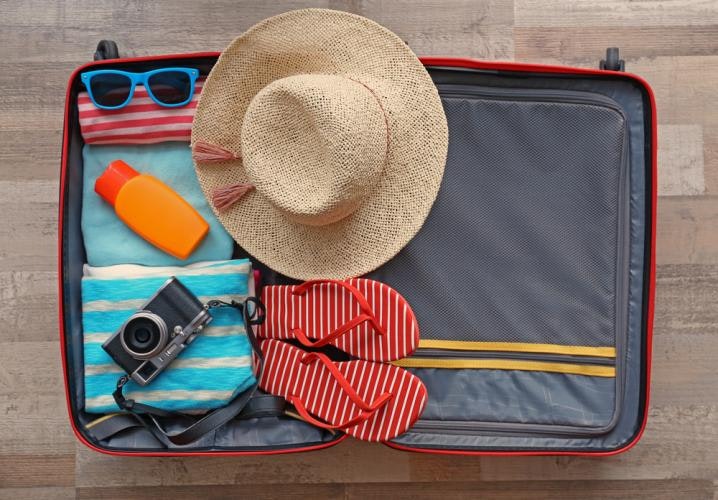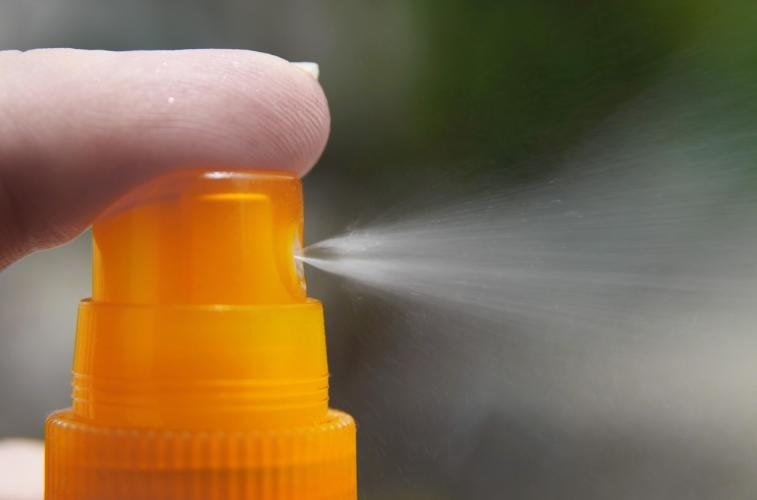Mosquito-Smart Travel Tips
Risk of mosquito-borne diseases in San Mateo County in low, but you may be at higher risk if you travel to other areas of the state, country, or world. If you’re infected with a mosquito-borne illness while traveling, there is a risk you could pass it on to local mosquitoes once you return home, and a local outbreak could occur. These tips will help you protect yourself and others from mosquito-borne illnesses during and after travel.
Step 1: Get Prepared for Travel

Before you travel to areas with active transmission of mosquito-borne illnesses, talk to your healthcare provider to see if there’s anything you should do to protect your health. You can also visit the CDC’s travel health website (https://wwwnc.cdc.gov/travel) to see whether there are any advisories for your destination.
When booking a place to stay, you may want to choose hotels that have air-conditioning or window screens. If you’ll be staying somewhere that doesn’t, you should take a bed net to protect against mosquito bites at night.
Don’t forget to pack long pants, long sleeves, socks, and closed shoes to protect against mosquito bites. You should also pack your favorite EPA-registered mosquito repellent – it may be difficult to find or very expensive at your destination.
Step 2: Stay Healthy During Your Trip

When spending time in areas where there is active transmission of a mosquito-borne disease, you should take precautions against mosquito bites. Many of these precautions are the same ones you’d take at home:
- cover up with long sleeves, long pants, socks, shoes, and a hat
- wear an EPA-registered insect repellent
- keep mosquitoes out by keeping doors and windows screened or closed.
If you’re staying somewhere without air conditioning or windows screens, you may also need to use a bed net to prevent mosquito bites at night while you’re sleeping.
Step 3: Protect Others after You Return Home

When you return from your trip, you can’t forget about mosquito-borne illnesses just yet!
Many people who are infected with mosquito-borne illnesses don’t feel sick, but can still pass their infections on to mosquitoes that bite them. Others may feel fine while traveling, but start to feel sick after they return home. If you’ve been to an area with active transmission of a mosquito-borne disease, you should take steps to avoid mosquito bites for up to 3 weeks after you return home – even if you don’t feel sick:
- use an EPA-registered mosquito repellent
- keep doors and windows closed or tightly screened
- cover up with long sleeves, long pants, socks, and closed shoes when mosquitoes are biting
- take steps to reduce mosquito populations around your home
If you’ve been in an area with Zika virus transmission, you should also take steps to prevent transmission to any sexual partners. You can learn more HERE.
If you begin to feel sick or believe you have a mosquito-borne illness, see a healthcare provider. Be sure to tell them about recent travel, including:
- when you traveled
- where you traveled
- whether you noticed any mosquito bites or mosquito activity
- steps you took to prevent mosquito bites
- when you began to feel sick
- whether you are pregnant or thinking about conceiving
Learn more about staying safe from mosquito-borne diseases while traveling HERE.
Page last reviewed: November 8, 2023
